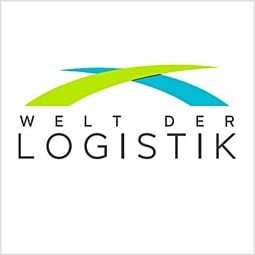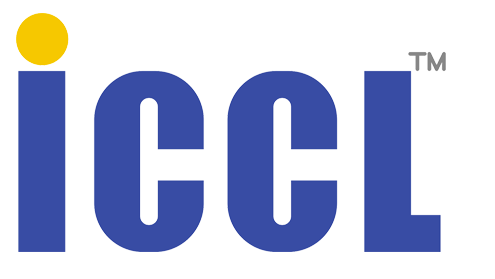KEJARA Revamp Set To Reshape Road Safety

Daimler gets on board with education projects in India and the Congo to combat child labour and improve living conditions.
Daimler AG is taking important steps to ensure respect for human rights in the vicinity of raw-material mines. The company has joined forces with the Terre des Hommes Netherlands NGO and the Responsible Mica Initiative (RMI) to combat child labour in Indian mica mines. The cooperation with the Bon Pasteur aid organization against child labour in the Democratic Republic of the Congo, which was initiated in 2019, has achieved initial successes.
Important Steps
“For Daimler,” stated Renata Jungo Brüngger, Member of the Board of Management of Daimler AG and Mercedes-Benz AG responsible for Integrity and Legal Affairs, “the cooperation with Terre des Hommes and the Responsible Mica Initiative is an important step in combating child labour in mining regions. We will support projects in India and the Democratic Republic of the Congo with 1.2 million euros until 2022, creating future opportunities for the people there.”
Markus Schäfer, Member of the Board of Management of Daimler AG and Mercedes-Benz AG responsible for Daimler Group Research and Mercedes-Benz Cars COO added, “Social, environmental and economic aspects are the basis of Daimler’s sustainable business strategy. For us, ethically responsible raw-material extraction and processing begins right at the start of the value chain. We are intensively involved in the supply chain – going as far as into the raw-material mines.”
Terre des Hommes in India
The cooperation with Terre des Hommes Netherlands in Jharkhand, India aims to enable children in the vicinity of mica mines to attend school and to provide economic support for their families. The raw material mica is used, among other things, to achieve the shimmering effect of vehicle paints. The project aims to prevent parents from having to send their children to work in mica mines. At the same time, a good education makes it more likely that the children can earn their own living later as adults and that the family is not dependent on income from child labour.
In addition to the educational opportunities for children, local structures are to be strengthened and information is to be provided on children's rights. To this end, Daimler and Terre des Hommes Netherlands are working with regional aid organizations. The project supported by Daimler will initially run until 2022.
Consistent Action
Mr Brüngger pointed out, “We are taking consistent action against child labour with three measures: our Human Rights Respect System, on-site audits and cooperation with non-profit organizations.”
By joining the Responsible Mica Initiative, Daimler AG intends to take even more consistent action against child labour in mines. The initiative is committed to a fair, responsible and sustainable mica supply chain in India. To this end, Daimler AG is working with other companies, NGOs, industry associations and government representatives to develop standards for responsible working conditions, to strengthen local communities, and to support the establishment of a legal framework for the mica industry. The initiative aims to completely eliminate child labour and unacceptable working conditions in mica mines by 2022.
Systematic Examination of Human-Rights Risks
Daimler AG takes a systematic approach to counteracting human-rights violations early and actively. A strategic approach to respecting human rights, the Human Rights Respect System, has been developed both for its own majority-owned companies and for its supply chains. As an important measure, the company has identified potentially risky raw materials. The aim is to gradually make the supply chains for these potentially risky raw materials transparent and to take risk-based measures.
Two years ago, Mercedes-Benz Cars already made its paint supply chains transparent, audited mines and processors and traced the path of mica supplies. The project with Terre des Hommes and Daimler’s entry into the Responsible Mica Initiative complement these measures so that sustainable improvements can be achieved locally around the mica mines and beyond the boundaries of the company’s own supply chains. “At Mercedes-Benz, we follow the recommendation of NGOs and other external stakeholders not to exclude countries of origin of critical raw materials as sources of supply, but to work locally to improve the situation,” said Markus Schäfer.
Successful Start of Project in Congo
Daimler’s approach to cobalt is similar to that for mica. As a supplement to these measures, such as checks through audits in its own supply chains, in 2019 the company launched a social project against child labour in the Democratic Republic of the Congo together with the non-profit organization Good Shepherd International Foundation (GSIF). The aim is to improve the living conditions of the people in the Kolwezi mining region. The four-year project made a successful start and has reached important milestones after just over a year.
“A key component of the project with GSIF is to give the children in Kolwezi the opportunity of education and thus future prospects. Thanks to the cooperation with Bon Pasteur in Congo, more than 300 children have been able to attend school in the past twelve months,” said Renata Jungo Brüngger. More than 50 of them had previously worked in mines. In addition to schooling, the children also receive healthcare assistance.
Livelihoods for Women
Another focus is on creating alternative livelihoods, especially for women, by developing sustainable agriculture for example. More than 50 women have received training in agricultural techniques. In the first year of the project, more than two tons of crops were harvested, which is an important source of food and income for the families and thus an alternative to working in the mines. Additional milestones last year included educational advice for parents, education on children’s rights and training in conflict management to resolve disputes peacefully in the local community.
Daimler AG focuses on sustainable solutions in the creation of mobility. This includes the responsible procurement of the raw materials mica and cobalt. By supporting activities to combat child labour in India and the Congo, the company is consistently following its course of protecting human rights. Daimler will provide over 1.2 million euros in funding for this purpose by 2022.
























